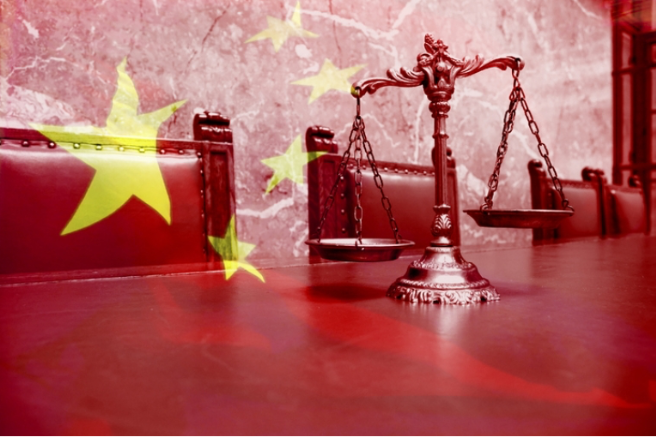China Overhauls Arbitration Law After Three Decades, Opens Door to Foreign Institutions
Beijing, September 12, 2025 – In a milestone legal development, Chinese lawmakers have passed the first major revision of the Arbitration Law in 29 years, a move set to modernize dispute resolution and broaden access for foreign and Hong Kong arbitration bodies. Adopted at the NPC Standing Committee session on September 12, 2025, the revised law introduces 96 articles across eight chapters and will take effect on March 1, 2026bignewsnetwork.com. The overhaul explicitly allows foreign arbitration institutions to establish branches in designated areas of mainland China, such as pilot Free Trade Zones and the Hainan Free Trade Port, to conduct foreign-related arbitrationsbignewsnetwork.combignewsnetwork.com. It also permits Chinese arbitration commissions to set up operations overseas and embraces digital proceedings, reflecting Beijing’s ambition to make China a more attractive venue for international commercial arbitrationbignewsnetwork.combignewsnetwork.com. For foreign law firms and in-house legal teams, the new law promises greater flexibility in resolving cross-border disputes in China, while raising the bar for arbitration practices and enforcement.
Modernized Procedures and Digital Arbitration
One of the standout changes is the endorsement of online arbitration hearings and filings with party consentbignewsnetwork.com. This legitimizes virtual proceedings, which became prevalent globally during the pandemic, and signals that China’s arbitral institutions can leverage technology for efficiency. Allowing e-hearings and electronic evidence submissions will reduce costs and logistical hurdles, benefiting foreign parties who previously had to travel to China for every session. The revised law also refines mechanisms for judicial support and supervision of arbitration. Courts are expected to take a more hands-off approach in intervening, aligning with international norms, while still providing necessary enforcement of awards. Importantly, the law improves procedures in foreign-related cases – for instance, by streamlining the process for recognizing and executing international arbitral awards in China, which has sometimes been unpredictable. By updating decades-old provisions, these reforms bring Chinese arbitration rules closer to UNCITRAL Model Law standards, giving foreign counsel greater confidence that an arbitration in China will be handled with transparency and globally familiar practices.
Key innovations in the 2025 revision include:
- Online Arbitration: Proceedings may be conducted via internet platforms if parties agree, enabling remote testimonies and digital case managementbignewsnetwork.com.
- Global Collaboration: Chinese arbitral institutions are encouraged to participate in setting international arbitration rules and can open branches abroad, fostering exchange with global bodiesbignewsnetwork.com.
- Foreign Arbitral Access: For the first time, overseas arbitration institutions can operate within China’s borders (in FTZs, Hainan, or other approved areas) to administer cases, significantly boosting choices for dispute resolutionbignewsnetwork.com.
- Enhanced Foreign-Related Provisions: Simplified procedures for arbitrations involving foreign elements, plus clearer court support (e.g. interim measures, evidence preservation) to ensure such arbitrations run smoothly and awards are enforceablebignewsnetwork.com.
Opening FTZs to International Arbitration Bodies
The permission for foreign arbitration institutions to set up in China’s pilot free trade zones and Hainan is a game-changerbignewsnetwork.combignewsnetwork.com. In recent years, China experimented with this concept by allowing a handful of Hong Kong and foreign arbitral institutions to administer cases in zones like Shanghai FTZ on a pilot basis. The new law solidifies and broadens that policy. This means globally renowned forums – for example, the Hong Kong International Arbitration Centre (HKIAC) or the Singapore International Arbitration Centre (SIAC) – can establish a presence in specified mainland locales to directly handle arbitrations. Such cases would typically be foreign-related disputes, i.e. involving at least one non-Chinese party or overseas interests. For foreign companies and investors, this development offers the comfort of using a familiar arbitration commission under Chinese legal supervision, potentially bridging the trust gap some had with purely local institutions. It’s also a boon for regions like the Greater Bay Area: Hong Kong-based arbitral bodies are expected to expand services in neighboring Shenzhen or Qianhai, leveraging their reputation while operating under the new Chinese legal frameworkscmp.comscmp.com. From a client perspective, a U.S. company in a contract dispute with a Chinese SOE might soon opt to arbitrate in Hainan under ICC (International Chamber of Commerce) rules, for instance, which before was not possible on the mainland.
Chinese authorities emphasize that this opening is reciprocal and managed – foreign institutions must abide by relevant regulations and will likely need case-specific approvals or filing with Chinese justice authorities. Still, the presence of these institutions in FTZs is expected to raise the quality and international confidence in China-seated arbitrations. Law firms, especially those with international arbitration practices, may find new opportunities to represent clients in mainland proceedings that apply their preferred rulesets. Additionally, Chinese enterprises going abroad could benefit when Chinese arbitration commissions establish overseas branches, providing more options to resolve disputes under familiar systems even when abroadbignewsnetwork.com.
Enforcement and Global Credibility
The revised law also tackles perennial concerns about arbitration in China – namely enforceability of awards and court interference. It strengthens the finality of arbitral awards, limiting the grounds on which courts can annul an award. This aligns with international practice under the New York Convention (to which China is a party) and should prevent protectionist local court decisions that occasionally plagued foreign-related cases in the past. Moreover, it provides clearer guidance for courts to assist arbitrations (for example, granting property preservation orders or injunctions in support of arbitration). Foreign counsel will welcome these measures, as they reduce uncertainty about whether an award rendered in China will hold up. The law’s drafters have underscored China’s intent to build itself into a “preferred venue” for international arbitrationbignewsnetwork.com. Achieving that means boosting credibility – something this comprehensive update strives to do by aligning more closely with global norms and explicitly encouraging international cooperation.
With the March 1, 2026 effective datebignewsnetwork.com, stakeholders have a short runway to adapt. Arbitration commissions across China will update their rules and may launch new branches or joint ventures. Foreign arbitral institutions will be formulating plans to capitalize on the newly opened FTZ markets. Legal departments of multinational companies should review their dispute resolution clauses in China-related contracts: the calculus might shift in favor of choosing arbitration seated in mainland China under the revamped law, especially if a trusted foreign institution or a reputable Chinese commission (now empowered by improved laws) can administer the case. In sum, China’s arbitration landscape is set for a rapid evolution. The reforms promise a more globally integrated, user-friendly system, but their real impact will be seen in practice as cases begin to test the boundaries of the new provisions. Foreign legal practitioners, arbitrators, and businesses are advised to monitor implementing regulations and pilot programs in the coming months to fully leverage the opportunities this arbitration overhaul presentsbignewsnetwork.combignewsnetwork.com.







